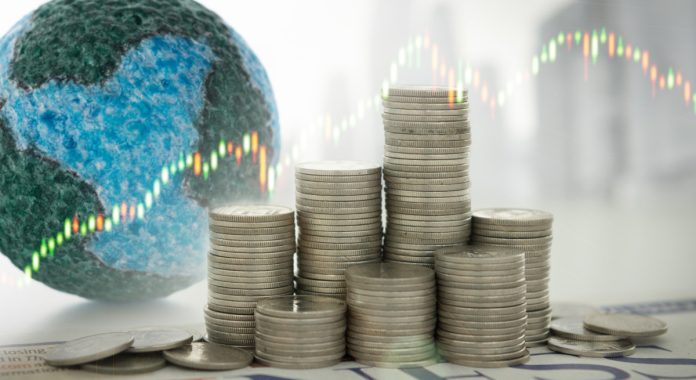Although some of these variables may change depending on how weighted an economy is in one sector, as a general rule, particular fundamentals will determine the strength of a country’s economy. Today, we will examine some of the key factors that economists look at when determining the likelihood of future economic growth.
Inflation
Regarding the price of goods and services spread across the country, governing bodies and central banks generally do not want the inflation rate to exceed 4% or drop below 2%. This is considered the norm for countries in the West and Europe, however, this figure might be different for some countries in Africa or South America, for example, that struggle with high inflation rates.
For example, the current economic crisis in Argentina is continuing to escalate. Their inflation rate is at an eye-watering 104% and is in danger of spiraling out of control. For this South American country, anything under 20% would be considered a win for now. However, if the US economy suddenly recorded an inflation rate of 20%, the cause alarm bells would be ringing.
As you can see, it can also be a relative figure – but Argentina is in a very worrying predicament right now.
Predicted GDP
The gross domestic product (GDP) of a nation weighs the total of goods and services sold annually. Similar to inflation, anything from 2% to 4% is usually an excellent figure to aim for, and it is one that many countries would be happy with. Emerging economies such as Brazil, China and India have recorded much higher levels than this over the last 10 years as their economies grow in scope.
A massive explosion in GDP can signal that prosperous times lie ahead for that particular country. The country with the highest GDP currently is Guyana. This small South American nation has sprung into global economic news following a significant oil discovery.
Although there are always other aspects to consider when it comes to GDP to ensure that a country’s economy isn’t overly weighted to one industry, overall, it is considered an enormous net positive. This argument has more weight as when a country is experiencing low levels of GDP or negative growth, it always indicates that its economy is struggling.
High employment rate
If a nation releases figures to show that its unemployment rate is less than 2% of the working population, this is considered ideal, especially for an established global economy in the G8. Of course, employment rates can fluctuate substantially in less developed countries or emerging economies. However, regardless of any internal turmoil or economic concerns, if a substantial number of people are at work, this is usually a positive sign for the country’s overall health.
In addition, if a country can attract workers in prominent or new industries that are earmarked for substantial growth, they could look to leapfrog countries near them in the GDP rankings. One example would be countries looking to provide suitable foundations for AI companies to set up shop to explore the full possibilities of the new technology.
Strong global currency
Suppose a country’s currency is doing well on the international forex markets. In that case, this shows that they are not devaluing it by quantitative easing, and the country is finding a good balance when it comes to other indicators, such as a trade surplus.
If a country can make its currency stronger on a global stage, this means it can import goods at a lower cost and they can export goods for less money. Of course, that may oversimplify the nuances you can expect to see in international trade. However, as a rule of thumb, a strong currency generally signals that a country is doing well internationally.
Conclusion
Although some other factors can play a minor role, the points we have discussed today all explain the critical factors when measuring the strength of a country’s economy. If you digest a range of economic and political news, this is another essential component we haven’t discussed in much detail today.
Suppose a country has a stable global currency, controlled inflation, high employment and an impressive gross domestic product. In that case, you can bet your bottom dollar that they won’t struggle to keep their economy out of recession. Even if they are experiencing other social or political issues, if all of these variables are strong, this signals to the international community that their economy is robust and open for business.
Once all of these factors are in line and firing on all cylinders, it bodes well for future investment, international relations, job creation and overall prosperity.


































